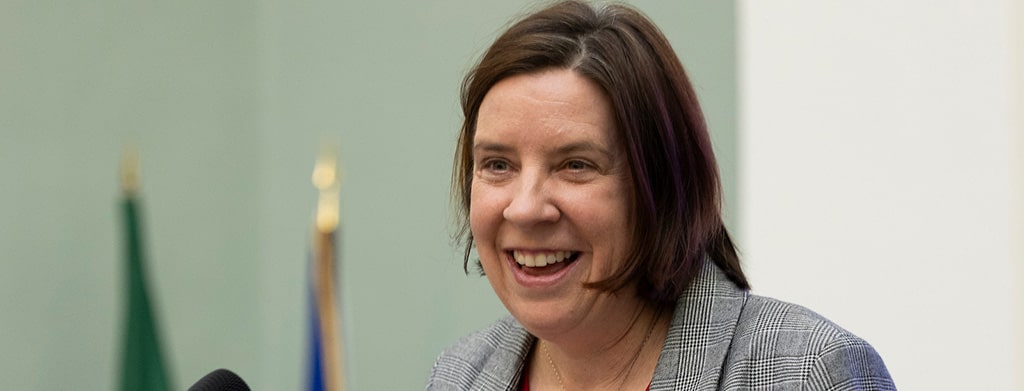
Disclosure approach must be revisited – DPP
The Director of Public Prosecutions (DPP) has said that her office’s “strongly felt” value of independence is “not a shield from scrutiny or transparency”.
Catherine Pierse was speaking at an event last night (27 March) to mark 50 years since the appointment of the first DPP in 1975.
“Ultimately, all of our decisions to prosecute can be tested in court and, where we decide not to prosecute, a victim is entitled to reasons and to a review of that decision,” she stated.
She added, however, that her office, as well as the wider criminal-justice system, had more work to do to capture and publish detailed relevant data to improve visibility of how the system was functioning.
Diverse population
Speaking about changes in society since 1975, the DPP told the event that any time-traveller from 1975 would be struck by the marked increase in women working across the criminal-justice system.
“We have a way to go yet, however, to ensure that the system is fully representative of the diverse population we serve,” she warned.
On delays in the justice system, the DPP acknowledged that there was a need for more judges and courtrooms, as well as investment the services that support a criminal case.
“But there is also a need for better co-ordination of our respective resources, so that the capacity in the system is used to best effect, and our practices are fit for purpose in a digital era,” Pierse added.
‘Vast amounts’ of material
She also said that there was a need to revisit the policies and practices that underpinned her office’s current approach to disclosure.
“Currently, the prosecution and investigators are reviewing vast amounts of material to identify if there is information that might be of relevance to the defence, in the absence of any statutory obligation on the defence to engage on this,” the DPP stated.
She welcomed clarity from a recent Supreme Court judgment that rejected the notion that disclosure of counselling notes in sexual-offence cases was required.
"I think it is important to be aware that other categories of records can also contain deeply private information – such as medical social work or family-law records and mobile-phone data.
“The sooner in the process we as a prosecution can clarify what is relevant and ensure that this is disclosed, then the sooner defence lawyers can have a meaningful conversation with their clients about whether they want to contest or plead guilty to a charge,” the DPP stated.
‘Fair’ remuneration
She said that putting in place the systems to support this early engagement was key, adding that fees for defence lawyers and prosecution counsel fees should be structured to support early engagement with a case.
Referring to a review of legal aid, the DPP stated: “It is important for the administration of justice that people are attracted to work in criminal law and that the remuneration is fair.”
At the event, the DPP also launched a specially commissioned book, A History of the Office of the DPP: 1975-2025 by Dr Niamh Howlin of the UCD Sutherland School of Law.